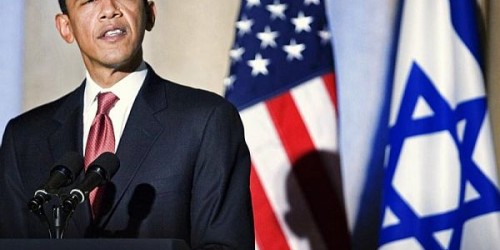
By: Paul J. Balles
The Gulf Daily News (Wednesday, 2nd June 2010) headlined a front-page article “The Silence of America”.Questions were submitted to the American Embassy, the White House, US State Department and Secretary of State Hillary Clinton.
The article concluded THE RESPONSE WAS SILENCE. The questions posed in that article deserve a response, but not the twists provided by Israeli apologists or Zionist controlled Washington.
Why, after all the years of total blind US support for Israel, would anyone expect anything different? Here are the questions and my answers:
1. What will it take before the US even condemns Israel’s behaviour?
a. A provable catastrophe committed by Israel resulting in the deaths of thousands of Americans. Israel’s behaviour has no judge other than Israel. Their behaviour will remain unchecked until a significant number of Americans suffer from the reality and become enraged.
“The US has not and never will condemn Israel for being what ex-Israeli Gilad Atzmon described as ‘an inhuman murderous collective fuelled by a psychosis and driven by paranoia’.”
2. How many people must die at the hands of Israelis before the US will take action against their behaviour? Ten people? 1,000? 10,000?
a. Consider how many Palestinian (6348 between 2000 and 2009) and Lebanese (1401 in two unprovoked raids) civilians have died unnoticed by America. Remember the provocation by Israel and the execution by America in Iraq; add another 1,366,350 innocents. To the Israelis, what’s another ten murders in a humanitarian flotilla to Gaza?
3. Why is the US so against an independent inquiry into the flotilla incident?
a. The facts of such an inquiry, like the Goldstone inquiry into the carnage of Operation Cast Lead, would be ignored and the truth of its conclusions denied. Israel says “no independent inquiry”. America follows.
4. Any armed attack on any vessel in international waters would be deemed an act of piracy or war by most countries. Is the US definition of piracy and war different from the rest of the world?
a. If the pirates are Somalis, no. Pirates are pirates If the pirates are Israelis, yes. Pirates become transformed into defence forces.
5. How would the US expect the crew or passengers of a civilian US ship to react if it was boarded by a foreign force in international waters? Would it expect them to defend themselves?
a. Bow, submit and genuflect if the foreign force is Israeli naval pirates. The victims of the Israeli attack on the USS Liberty–an American military ship–were silenced even though the combined air and sea attack killed 34 (naval officers, seamen, two Marines, and a civilian), wounded 171 and severely damaged the ship. At the time, the ship was in international waters.
“If the American position was honest, we would say, ‘We’re not at war with Islam; we’re only at war with Muslims.’ When is the Muslim world going to waken to the American double talk that’s convenient only for Israel and America?”
6. The US says it does not consider itself to be at war with Islam, but how can it possibly hope for trust from the Muslim world and elsewhere when it tacitly backs such acts?
a. If the American position was honest, we would say, “We’re not at war with Islam; we’re only at war with Muslims.” When is the Muslim world going to waken to the American double talk that’s convenient only for Israel and America?
7. Does the US condemn the detention of four Bahraini civilians and others onboard the flotilla in international waters?
a. Fortunately, the Bahraini humanitarians have been released and returned home. The US has not and never will condemn Israel for being what ex-Israeli Gilad Atzmon described as “an inhuman murderous collective fuelled by a psychosis and driven by paranoia.”
The US response? President Obama expressed “deep regret at the loss of life.” Ultimately Obama will follow Netanyahu’s attempt to justify the actions of the Israeli soldiers, saying they were “defending themselves” after being attacked.
The same old political scam.
* Paul J. Balles is a retired American university professor and freelance writer who has lived in the Middle East for many years.
